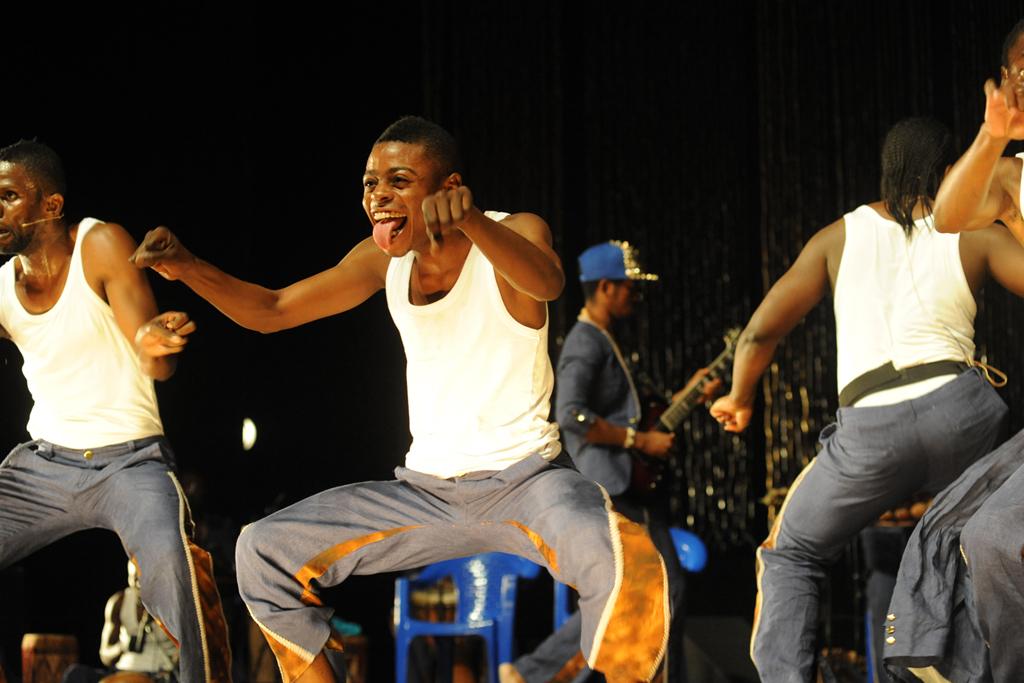Niçoise with sweet potatoes
Differences can be harmonious and allow people to come together despite their background and roots.

A scene from "Coup Fatal."
What is more surprising than a mix of traditional Congolese music and European baroque music? What is more powerful than someone who makes another culture’s codes his own? “Coup Fatal” (currently on tour in Italy and Germany) is a collaboration between the Congolese baroque singer, Serge Kakudji, the Belgian choreographer, Alain Platel and the Belgian jazz musician, Fabrizio Cassol. A bit tongue-in-cheek, the makers explain that they have made something like a salad; mixing a bit of Europe and a bit of Africa. This “niçoise with sweet potatoes” brings thirteen musicians and dancers from Kinshasa plus the counter-tenor to the scene, under the musical supervision of Rodriguez Vangama.
Here‘s the trailer.
I saw the show in Brussels. After the show, try to explain to a friend what you saw and I bet words will fall short to describe this inexplicable experience. This performance appeals directly to the senses and the emotions invoked. The absence of a clear story, logic or structure forces you to be guided by your instincts.
When I asked Serge Kakudji what Coup Fatal is about, he simply answered: “Coup Fatal is like the Congo River, you expect a wave to arrive but you never know when and how it will manifest itself.” I would even go as far as saying this show intelligently represents several facets of Congolese daily life: a day-by-day-existence enveloping the absence of thoughts about “tomorrow,” poverty, political corruption but above all, a determination to overcome hardship. According to Alain Platel it is remarkable how much that determination lacks in Western society.
Alain Platel smartly let the dancers’ bodies express in their own individuality the contradictory phenomena we can find in Congo; for instance, poverty opposed to the dandy movement better known as “sapologie.” This paradox is even present in the setting. In fact, the sculptor, Freddy Tsimba, offered an incredibly beautiful curtain made of war bullets for the show.
I think the paradox is everywhere in “Coup Fatal.” Perhaps, the main lesson here is that differences can be harmonious and allow people to come together despite their background and roots.



















